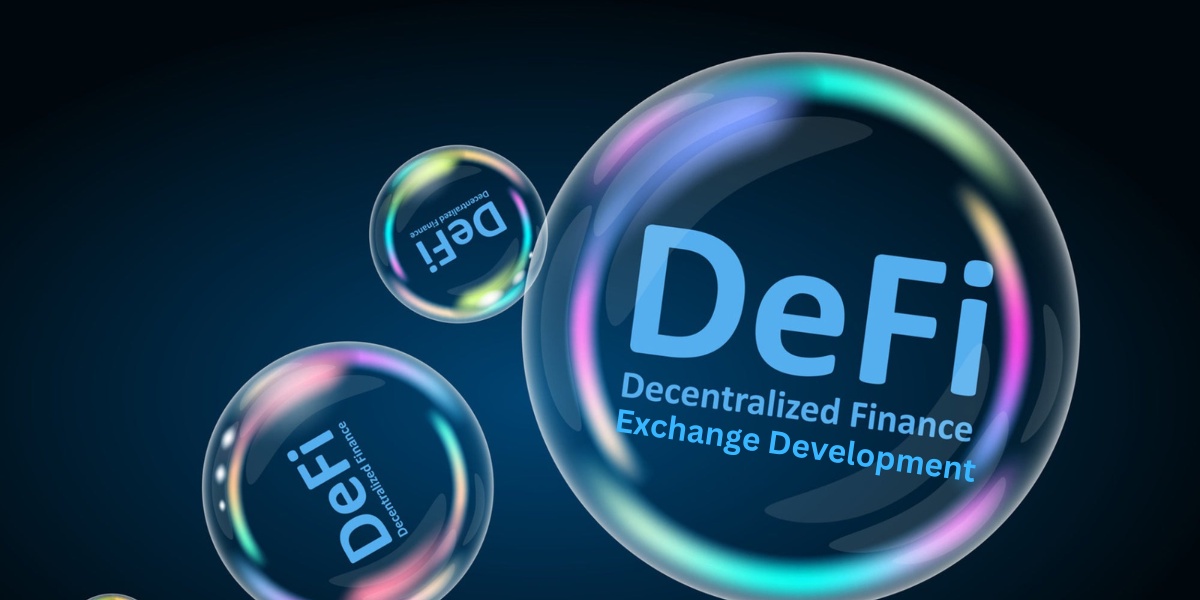The world of decentralized finance (DeFi) has unleashed a wave of innovation, transforming the traditional financial landscape. At the forefront of this revolution are DeFi exchanges, platforms that allow users to trade digital assets in a decentralized and permissionless manner. These exchanges have disrupted the status quo by eliminating intermediaries, empowering individuals with ownership and control over their funds, and introducing groundbreaking features such as automated market making and yield farming.
Understanding DeFi Exchanges
Definition and Core Principles
DeFi exchanges are decentralized platforms that enable users to trade digital assets without intermediaries, utilizing blockchain technology and smart contracts. They embody the principles of transparency, security, and user control over funds.
Advantages over Traditional Exchanges
DeFi exchanges offer several advantages over their traditional counterparts:
- Global Accessibility: DeFi exchanges are accessible to anyone with an internet connection, removing geographical barriers.
- Decentralization and User Ownership: Users have full control over their assets, eliminating the need for trusted third parties.
- Lower Costs and Fees: DeFi exchanges often have lower transaction fees, making trading more affordable for users.
- Enhanced Privacy: DeFi exchanges provide users with pseudonymous transactions, offering increased privacy compared to traditional exchanges.
Key Features of DeFi Exchanges
Decentralization and User Ownership
- DeFi exchanges operate on decentralized networks, ensuring that no single entity has control over user funds or transactions. Users have ownership and control of their assets through non-custodial wallets.
Automated Market Making (AMM)
- AMM algorithms enable decentralized exchanges to facilitate trades by automatically matching buy and sell orders through liquidity pools. This eliminates the need for order books and centralized intermediaries.
Liquidity Pools and Yield Farming
- DeFi exchanges leverage liquidity pools where users can contribute their assets and earn returns. Yield farming, a popular practice in DeFi, allows users to optimize their returns by allocating their assets to different pools.
Smart Contracts and Security
- DeFi exchanges rely on smart contracts to execute and automate transactions. These self-executing contracts enhance security by eliminating the risk of human error and reducing the reliance on intermediaries.
Building a DeFi Exchange
Selecting the Blockchain Platform
- Choosing the right blockchain platform is crucial for a successful DeFi exchange. Factors to consider include scalability, security, developer community, and compatibility with existing DeFi protocols.
Smart Contract Development
- Developing robust and secure smart contracts is essential. Auditing the code, ensuring proper testing, and implementing security measures are crucial steps in this process.
User Interface and User Experience Design
- A user-friendly interface and seamless user experience are vital to attract and retain users. Intuitive design, clear navigation, and responsive interfaces contribute to a positive trading experience.
Integration of Wallets and Security Measures
- Integrating wallets that support various cryptocurrencies and implementing strong security measures, such as multi-factor authentication and encryption, are vital for safeguarding user assets.
Compliance and Regulatory Considerations
- Understanding and complying with relevant regulations and legal requirements is crucial for building a compliant DeFi exchange. This includes anti-money laundering (AML) and know your customer (KYC) procedures, where applicable.
Case Studies: Successful DeFi Exchanges
Uniswap: Pioneering AMM
- Uniswap revolutionized DeFi with its automated market making protocol, allowing users to trade ERC-20 tokens seamlessly.
SushiSwap: Forking Success
- SushiSwap emerged as a decentralized exchange by forking Uniswap's code, introducing new features and incentivizing liquidity providers with its native token.
PancakeSwap: Binance Smart Chain's DeFi Giant
- PancakeSwap leveraged Binance Smart Chain's high-speed and low-cost transactions to become a popular DeFi exchange, offering an alternative to Ethereum-based platforms.
The Future of DeFi Exchanges
Interoperability and Cross-Chain Support
- DeFi exchanges are likely to embrace interoperability, enabling seamless asset transfer and trading across multiple blockchain networks.
Layer 2 Scaling Solutions
- To address scalability challenges, DeFi exchanges are exploring layer 2 scaling solutions such as sidechains and state channels, which can significantly increase transaction throughput.
Decentralized Order Books and Advanced Trading Features
- DeFi exchanges may evolve to incorporate decentralized order books, advanced trading features, and sophisticated trading tools, offering a more comprehensive trading experience.
Integration with Traditional Finance
- As DeFi matures, the integration of traditional financial services, such as fiat on-ramps, stablecoins, and regulatory compliance measures, will bridge the gap between traditional finance and DeFi.
Conclusion
DeFi exchange development has emerged as a game-changer in the realm of finance, providing a decentralized and inclusive alternative to traditional exchanges. As we witness the rapid growth and evolution of the DeFi ecosystem, it is clear that DeFi exchange development will continue to shape the future of finance, unlocking new possibilities and transforming the way we trade, invest, and interact with digital assets.


No comments yet